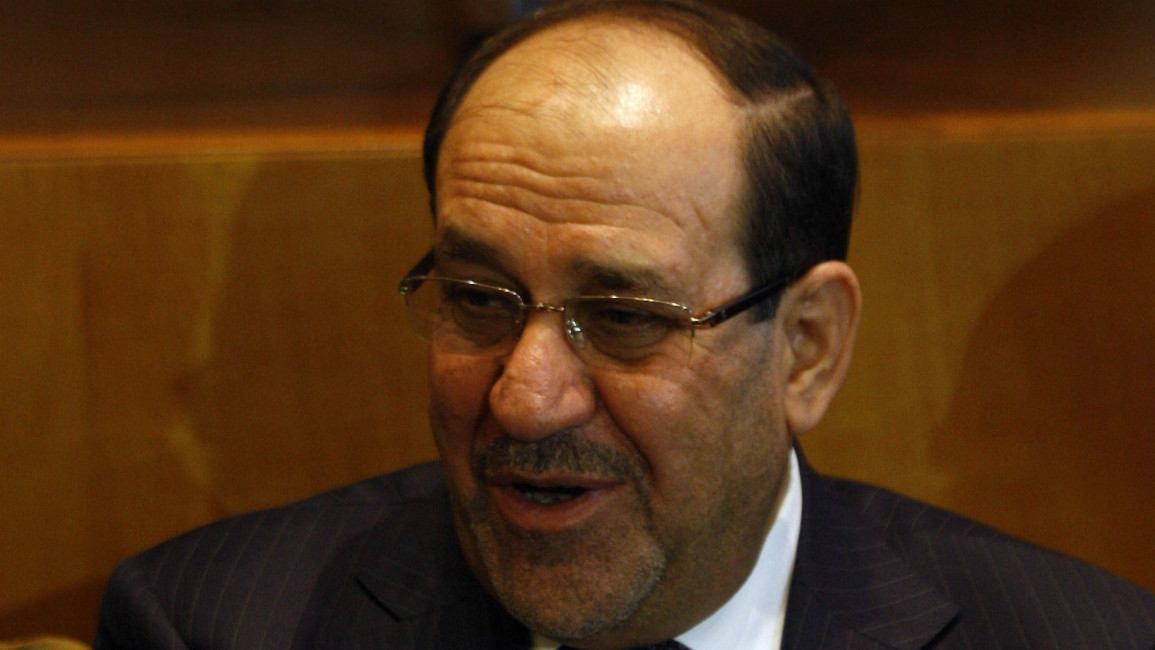Sadr rival demands parliament reconvene as sit-in continues
Former Iraqi prime minister Nouri Al-Maliki on Monday called for the resumption of legislative sessions, after his political rivals occupied parliament for almost a week, deepening political tensions.
Though supporters of the powerful Shiite cleric Moqtada Sadr have not camped inside the legislative complex since Friday, they continue a sit-in in the gardens around it, inside Baghdad's normally secure Green Zone.
They are protesting a nomination for the post of prime minister by the rival Shia Coordination Framework, to which Maliki belongs and which is backed by Iran.
The protest is part of pressure tactics by Sadr after months of negotiations following October elections failed to produce a new government, prime minister and president.
Last Wednesday Sadr called for the dissolution of parliament and early polls.
But in televised remarks Monday, Maliki said: "Neither the dissolution of parliament nor the change of the regime nor early elections will be possible without the resumption of parliamentary sessions."
Parliament "alone discusses these demands and what it decides we will execute", he continued in his speech marking the Shia mourning ritual of Ashura.
Sadr's bloc had emerged as the largest in parliament following the October ballot but in June 73 of his lawmakers quit in a bid to break the deadlock over forming a new government.
That led to the Coordination Framework becoming the largest bloc in the legislature.
On Thursday the Framework had said they were conditionally open to Sadr's call for new elections, signalling a potential deescalation.
But they suggested the occupation of parliament must end.
According to the constitution, the legislature can only be dissolved through a vote passed by an absolute majority. A vote can be requested by a third of lawmakers, or by the prime minister with the president's approval.



